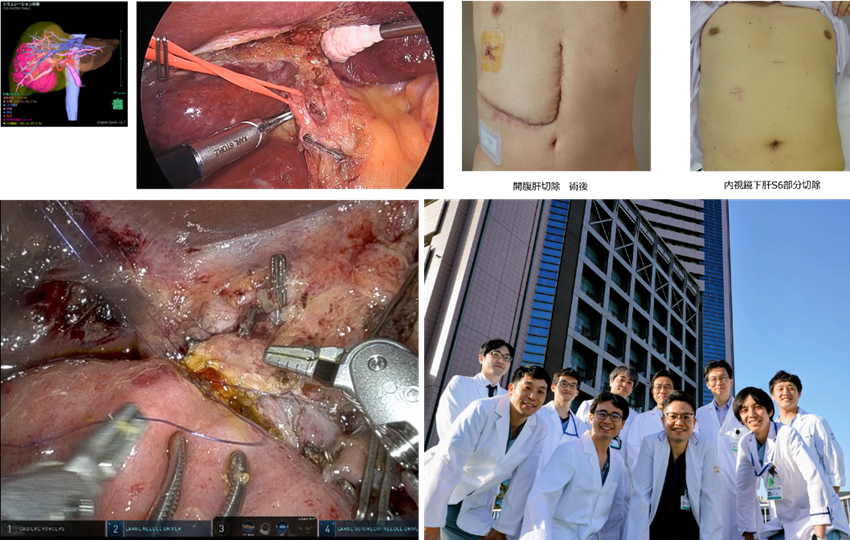Hepatobiliary and Pancreatic Surgery
Clinical practice
Care delivery system
Malignancies of the liver, biliary tract, and pancreas require urgent puncture and drainage because they can cause inflammation in the surrounding area and jaundice. In addition, because of the difficulty of diagnosis of these malignancies, endoscopic biopsies or multiple imaging studies may be performed. NCCH has assembled specialists from each clinical department to provide a comprehensive care delivery system to meet our patients’ needs.
The Department of Hepatobiliary and Pancreatic Surgery has 4 staff physicians, 2 oncology fellows, and 4 to 5 resident physicians. Outpatient care is provided by an assigned staff physician who changes daily, with the remaining physicians working together to perform surgeries. Our resident physicians come from all over Japan, bringing with them a passion to become surgical oncologists after they have completed their residency in general surgery. This allows us to perform a large number of highly difficult surgeries with only a small team.
We may also combine surgical treatment with medical treatment or other treatments that involve radiotherapy, ultrasound, CT, or endoscopy. Each department works together to provide expert care; for example, postoperative adjuvant chemotherapy is entrusted to physicians specialized in chemotherapy. NCCH also has a full range of other clinical departments that support cancer treatment, including Intensive Care, Palliative Medicine, Psycho-oncology, and General Internal Medicine.

Clinical practice Menu
- Treatment outcomes
- Information about hepatectomy
- Information about pancreatectomy
- Efforts to improve perioperative nutrition (in preparation)




